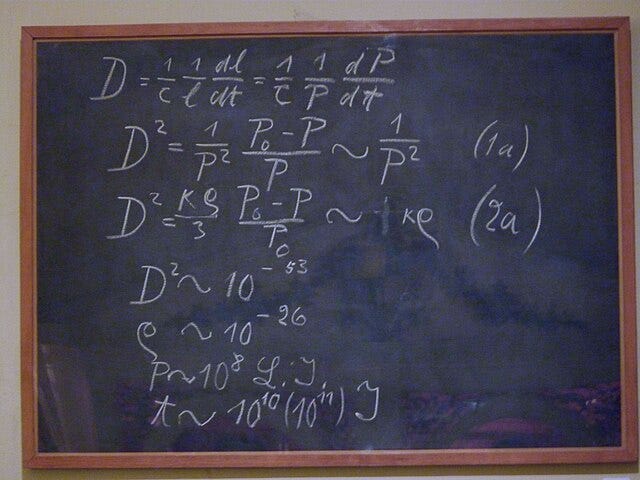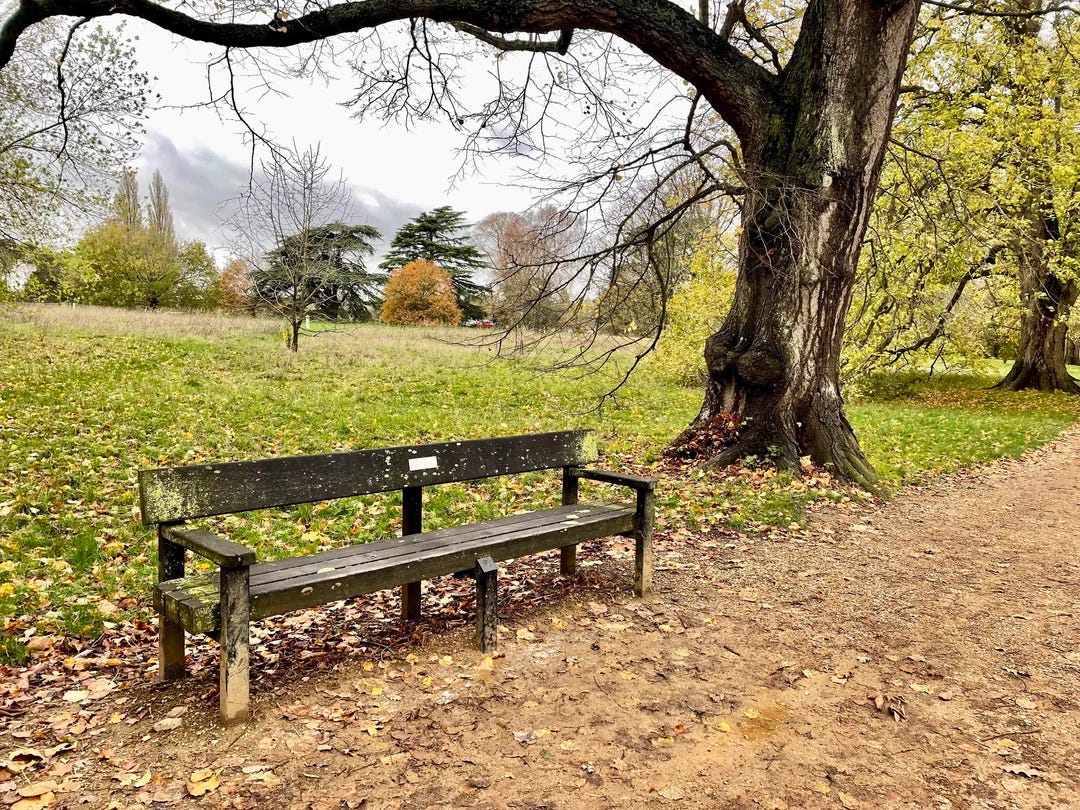November 2017, Oxford.
It’s my first time here, a new engineering leader on the other side of the world trying to save a failing project. After all, this is what I was hired for – to manage complex development projects in the emerging field of quantum computing. I land in this intellectual Eden and waste no time going to the project site, a building seventeen kilometres outside of the University that could have just as easily passed for an Amazon warehouse. The steel sentinel separates the technological marvels inside from the natural world, and prying eyes, outside.
“Why did the company move here from the University?” I ask my hosts.
“It’s the only place without historical significance.” I ask why that matters.
“Everything with historical significance is too protected,” he says. “We needed to be more efficient than that.”
He asks if I want a tour of the labs. I’d rather get to work, so he leads me upstairs. Before we can enter the locked hall I have to leave my cell phone and wallet in the box on the wall. I argue when they demand my laptop; we finally agree I’ll turn the Wi-Fi off. I don white shoe covers, hand my jacket to the supervisor, and walk into the vacuum interlock. “Hold there sir” the guard says and I obey. It’s all strikingly efficient, like he and I have done this hundreds of times before. I wonder when this became normal.
Inside, I cut straight to the chase. “I understand this project is ambitious. That’s why we came to you in the first place. The requirement is a four hour cooldown from room temperature to ten millikelvin. You and I both know it can be done, but all you’re giving me is excuses. Where are the men who are actually working on the project? Why aren’t they in this room?”
My job is to turn the messy business of cutting edge science into something efficient. I get called in when there are millions of dollars and company futures on the line. In this case, it’s a race for quantum supremacy. Our small startup is racing against IBM and Google to make a quantum computer that will solve the world’s hardest problems. Not that the stakes change anything.
I’ve always been cool under pressure, but now I’m turning it up to eleven. I need them to feel the urgency. Over the next few days I get to the office before them, waiting in the lobby with a steaming flat white in my hand. I coolly watch over the progress, setting up calls with key engineers back home to go over important issues. Sometimes, just because I’m bored of the nanoscopically clean rooms and the inert inhabitants, I’ll drop in a random “fuck” into a question and see how they react. Like “Why the fuck did you do that?” I need to have some fun too.
I’m amazed maybe, or confused, or just in awe at the collision of these two worlds: the great scientist and the great storyteller.
A week in, we agree to a day off. My hosts, maybe afraid I’ll show up at work anyways, plan a tour of the University.
They pick me up at eleven (Ubers have been banned here for a year and taxis are unreliable at my hotel). We march through University parks, briefly note the Ghandi plaque on our way to see the Radcliffe camera, pass by a library or two and make our way to the Museum of the History of Sciences. They insist this will be my favorite sight of the day, a landmark not to be missed.
The museum curator greets us at the door. He’s a friend of my hosts, and, like them, he’s eager to impress me with the artifacts. It’s clear they’ve told him what they want me to see, because he quickly shuttles me past the first rooms of glass cases. I glancingly notice old radios and brass telescopes, all upright and pointed at precisely the right angle to be admired. But before I can stop to look, he takes my elbow in his hand and guides me into a back room.
As we enter, we’re surrounded by glass bulbs. “Astrolabes,” the curator says, noticing my glance. But he seems unexcited about these, and he’s looking back and forth between me and the back wall. I look up to see a blackboard hanging from this wall, much like a family picture above a hearth, with six physics equations written in chalk. I realize this is what they want me to see. This is Einstein’s blackboard; the hand written equations show his understanding of the expansion of the universe from when he lectured here almost 100 years ago. This is scientific history right here on this wall, one of those artifacts that changed the world, and not in the bullshit tech bro way. And I’m here, standing in front of where the great scientist shared his work.
My hosts and the curator are all watching me wide eyed. I feel their eyeballs burning my neck. I smile while I keep my eyes on the equations. I move closer to the wall, walking slowly, and this seems to satisfy them that I’ve been properly impressed. After a few more seconds, my hosts ask if I’m ready. I say I am and we start to walk to the front. They ask me what I think, and I tell them it’s very impressive. Then I tell them how much I’ve appreciated this, but that I would like some time for myself. I’ll get a taxi back I say, and I thank them again before walking away.
I feel lost. I have just experienced the presence of a personal hero, and I feel, what exactly? Empty? Numb? Not what I should feel. Obviously not what my hosts expected, although I pray they haven’t noticed. I’m lost in thought wondering what is wrong with me as I tramp back into University parks. Suddenly realizing that I’m lost in place as well as thought, I stop and sit down on a greyed wooden bench. I sit and I stare, not so much at anything as away from myself. I breathe the cold autumn air deep into my lungs. The reds and oranges of fallen leaves rough the edges of the manicured path. As I’m taking it all in, I notice the plaque next to me on the bench. “IN MEMORY OF J.R.R. TOLKIEN. This bench and two trees nearby representing Telperion and Laurelin were donated by the Tolkien Centenary Conference 1992.”
I don’t know what I’m feeling now, only that for the first time today I feel something. I’m amazed maybe, or confused, or just in awe at the collision of these two worlds: the great scientist and the great storyteller.
As I’m grasping at guesses as to how and why the universe brought me here today, I hear the crunch of leaves strewn about underfoot behind me. I turn around to see a woman in the grass. She’s dressed in torn clothes, covered in paint, and as I approach I see she’s huddled over a full body sized canvas. She never even looks up at me; she’s lost in the wild movements of her brush as it throws paint from corner to corner. The yellow is deeper than marigolds, tinged with the dark brown of the maple trunks around her. The reds are the color of blood pooled over an Ogre from the Battle of Helm’s Deep. These are wild colors, and I’m overwhelmed with a release of emotions that leaves me breathless right there on the grass. Without looking to see if anyone is watching me, I sit cross legged and revel as this wild woman births images on the canvas from the great beyond. For the first time this trip, I don’t know what I’m supposed to do, so I do nothing for what feels like hours.
At some point I realize I should go, and I slink away from her to find a taxi to take me back to my hotel before it’s too dark. That night I toss in bed, feeling lost and sick and overwhelmed. Several times I hold back tears, though I tell myself that I have something in my eye and something in my chest and I’m just missing home. Sleep never comes to me, and I don’t want it to if it means I’d lose the marigold yellows flying across my eyes.
In the morning I have an email from my boss asking me to call him. He wants an update on the project and wants to know what else we should be doing. His email reminds me that this project could be the difference between beating Google and failing. I read it twice, and see a hold on my calendar for five hours from now. I know I should prepare for the call, should have solid answers about what blockers we’ve broken through and what issues I foresee this week. He likes that kind of efficient communication.
Instead, I close my laptop and call a taxi. “University parks…as close to the Tolkien bench as you can,” I tell my driver and get in. I feel for my wallet, hoping I have enough. As he drops me off, I ask the first person I see to point me towards that greyed mythological memorial. I follow his directions and soon am sitting again on the smooth cold wood. I look around, praying I can find the pagan deity from yesterday. I wander freely, without a plan, for hours. I miss my meeting searching for her. I never do find her. Finally giving up, I hail a taxi back to my hotel, prop open my laptop on my unmade bed, and book the next return flight home.
This is the story of when I first realized that I’d denied a part of myself for too long and it wouldn’t keep quiet. I had lost the joy of beauty as I mastered efficiency, but I thought it was okay because I was at the cutting edge of science. I was wrong. That’s my own story, but I’d love to know what made you realize you’d forgotten a part of yourself. And what are you now forgetting? If you’re open to it, please share in the comments.
Because we all overextend ourselves sometimes, and it helps to hear from all of us.







Thanks for this fascinating post. I'm hoping you'll tell us what happened on your return.
I've always felt a tug between the world of commerce and the world of the mind. While being present in both worlds was never incompatible, while I was working full time, the world of commerce dominated. Now it's the mind that dominates, although I maintain a presence in commerce.
Every essay feels like I’m wandering through an old mansion filled with different kinds of rooms... opening the door to each one to figure out the puzzle of what makes this house a home. I know that feeling of a hallow yearning to be filled by something that just is NOT currently present. It isn’t necessarily courage that drives us to book that flight, but desperation. I hope we get to read more about the Tolkien quest you took home with you!